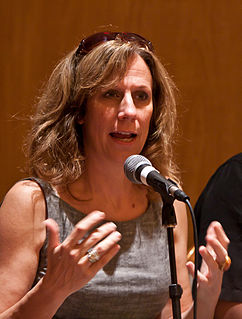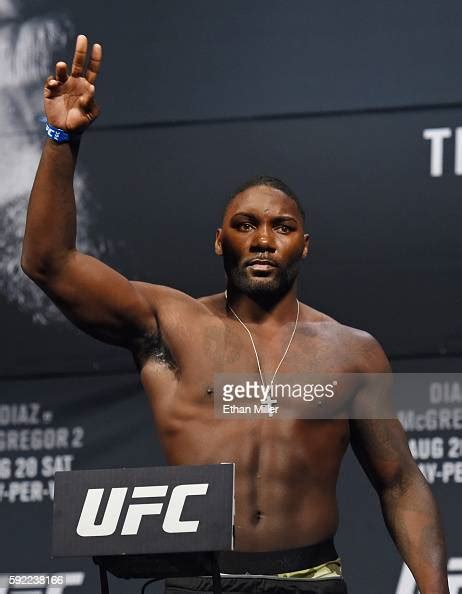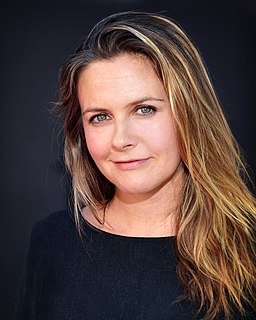A Quote by Lizz Winstead
I had self-doubt about whether my story was interesting to people. I didn't want to write something that was anecdotal. It was important to me that people would get something out of my book. I want people to read it and say, "Now I don't feel so alone," or "I'm going to remember that next time I'm being an asshole."
Related Quotes
If you want to write about a person who isn't nice, people say, "This is a bad book. It's about somebody I couldn't stand." But that's not the point. You don't have to like a character to like a book. Most of the time, people would misjudge and say, "I didn't like the book." No, you didn't like the character. That doesn't make it any less interesting of a book. In fact, to me, it makes it more interesting.
I would say plotting is the most difficult thing for me. Characterization is only hard because sometimes I feel I get so interested in it that I want to talk too much about the characters and that slows the story down. So I say, "Hey, people want to find out what's going to happen next, they don't want to listen to you spout off about this or that person." But I think even the bad guy deserves to tell his side of the story.
I don't feel that way now. I don't want to make movies for the 10 people who feel exactly the same way about the world that I do. I want to make movies that many, many people see, and I want to say something that I believe is important in a way that people who don't agree with me can hear. And that involves making different kinds of choices, but it's not like a compromise that I'm making. It's that something else interests me, something else is appealing to me.
Write what you want to read. So many people think they need to write a particular kind of book, or imitate a successful style, in order to be published. I've known people who felt they had to model their book on existing blockbusters, or write in a genre that's supposed to be "hot right now" in order to get agents and publishers interested. But if you're writing in a genre you don't like, or modeling yourself on a book you don't respect, it'll show through. You're your first, most important reader, so write the book that reader really wants to read.
I find interesting characters or lessons that resonate with people and sometimes I write about them in the sports pages, sometimes I write them in a column, sometimes in a novel, sometimes a play or sometimes in nonfiction. But at the core I always say to myself, 'Is there a story here? Is this something people want to read?'
It's not about pop culture, and it's not about fooling people, and it's not about convincing people that they want something they don't. We figure out what we want. And I think we're pretty good at having the right discipline to think through whether a lot of other people are going to want it, too. That's what we get paid to do.
Not that I say,"Oh,I'm not going to associate with certain people.," but I have my world,and I only want to be around people who I feel stimulated by. I have to be honest I do have a new quest: I want to meet more vegetarians,people who are more like minded. There's something real neat about that feeling. It makes you feel so settled to know there's somebody else sitting right there,being so passionate about what I'm passionate about. I don't want to be around selfish people. I try to keep myself surrounded by deep people who will move me.
People buy pads all the time, because they want to write stuff down. We're never going to get away from paper, ever. People like writing; that's why more people are writing more real thank-you notes now - not just to stand out, but because there's something about pen to paper, about holding something cool in your hands.
For people who are coming out of an oral tradition, it is very exciting to get into reading and writing and it is quite interesting how frequently people want to write their own story. Sometimes it is straight history - this is how we came about, how our town was created, a lot of that kind of effort, as soon as literacy came. The first thing you wanted to do was to put something down about who you are or how you are related to you neighbors. Then the next stage would be the stories, the cultural part of the story: this is the kind of world our ancestors made or aspired to.
I've always enjoyed being in the background, sitting in a cafe, watching people. But now, when I sit in a cafe, sometimes people watch me. It's a challenge. But it's usually people who want to say 'your book transformed my life', or something... so then I'm joyful. One moment before, I didn't want them to recognise me, but when they do, I'm glad.
It's funny - for a long time, I didn't know I was writing a book. I was writing stories. For me, each story took so long and took so much out of me, that when I finished it, I was like, Oh my gosh, I feel like I've poured everything from myself into this, and then I'd get depressed for a week. And then once I was ready to write a new story, I would want to write about something that was completely different, so I would search for a totally different character with a different set of circumstances.
When you write, you're alone in a room. And when someone reads a book, they're alone in a room, too, usually. It's a really intimate exchange. And so people ask me where I get the boldness to talk about this or that, but I didn't feel like it required any sort of courage, because I was alone. Sometimes it feels weird for people to read it.

































